News Release from Waco Convention & Visitors Bureau
Waco is now officially a “Music Friendly” destination, a certification granted by the Texas Music Office, which is part of the Office of the Governor’s Economic Development and Tourism Division.
A grassroots local group began pursuing the designation about a year ago. The working group — Katie Selman, of Keep Waco Loud; Lindsay Liepman, of Channel 25; Fiona Bond, of Creative Waco; and Todd Bertka, director of the Waco Convention & Visitors Bureau — worked hard to earn the designation, and many people attended open meetings over a period of several months.
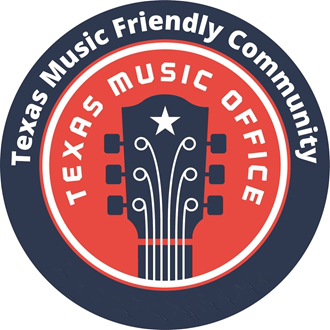
Planning culminated in a workshop in August 2019, chaired by Brendon Anthony, director of the Texas Music Office. Attendees, representing various styles of music, gathered at Brotherwell Brewing to win this designation for Waco.
Leaders at the workshop included the Music Association of Central Texas; Baylor University and McLennan Community College music programs; Waco Symphony Association; Central Texas Jazz Society; and dozens of musicians, studios, and venues representing every musical genre. All expressed their enthusiasm for and commitment to working together to make Waco a community that supports and promotes its professional musicians and rich musical heritage.
It was the largest workshop of its kind in Texas, with well over 100 attending.
The designation involves administering and maintaining the Texas Music Office online listings of Waco/McLennan County area musicians, studios, and others involved in the music business. This work will be done by the staff of Waco Convention & Visitors Bureau. These listings will be located at https://wacoheartoftexas.com/music.
The designation brings much to Waco. It establishes a public reputation for Waco as a community that not only has a growing and thriving music scene but as a community that promotes musicians. It connects Waco with
the Texas Music Office and its programming and initiatives that can benefit our community.
What we do in Waco will be amplified through the TMO’s social media, website, and channels. It allows Waco to work more closely with other Music Friendly communities to see what is working there and allows us to be innovative leaders in how we cultivate and support our music community.
It also improves communication between the Waco City Council and the music community as we are now more easily identifiable through the music census.
Waco has a trifecta of special designations awarded by the State of Texas: the Waco Downtown Cultural District, Film Friendly Community, and now Music Friendly. These designations are a powerful signal that Waco
wants to attract activity in these sectors, and that Waco supports those important parts of the Waco economy.
Waco’s Music Friendly designation is yet another reason Waco is an amazing destination for travelers and for local residents to enjoy.
“Music Friendly communities certified by the Texas Music Office are serious about developing local music industry growth,” said CVB’s Todd Bertka. “A strong music industry creates jobs and also generates unique experiences
for both visitors and locals.”
Fiona Bond, executive director of Creative Waco, said: “This designation helps us support and promote musicians from classical to contemporary – especially at this time when the performing arts have been badly impacted by the coronavirus pandemic. Waco has a huge amount of talent and we are confident that this designation will help amplify our musical talent and help move the industry forward.”
Waco Mayor Kyle Deaver will officially accept the Music Friendly certificate in a Zoom ceremony at 1 p.m. July 30. The ceremony will be streamed live on wccc.tv/live. The media is invited to request the Zoom link if they would like to stream the ceremony as well.
The Waco Convention & Visitors Bureau is a department of the City of Waco.
The City of Waco has announced that Blue Duck Scooters are doing a “soft” rollout today, July 17, downtown. Blue Duck has deployed about 50 scooters.
Here are some of the details of the pilot program:
Basic Information
This is an exclusive agreement between the City and Blue Duck to operate a pilot scooter share program for one year.
To rent a scooter, download the Blue Duck app on your phone.
Blue Duck offers discounted rides for low-income individuals, veterans, and active duty service members. To apply for any of these programs, go to their website flyblueduck.com/access/.
Fifty scooters will be deployed for the soft launch; additional scooters (up to 150 total) will be phased in. Any additional scooters will require permission from the City.
Operation
Hours of operation are 7 a.m.-10 p.m., 7 days a week.
Service area includes downtown, uptown, and East Waco.
— Parking and riding will be limited to within the service area only
— Baylor is a no parking and no riding zone
— Cameron Park is a no parking zone (zoo is OK)
— Indian Spring Park, Suspension Bridge, Doris Miller Memorial, and lower Riverwalk are slow riding zones
— Baylor riverwalk trail (as identified on Waco Riverwalk map) and Umphrey bridge are permitted for scooter riding and parking
— Sul Ross skatepark is a no riding zone
— Downtown Transit Center bus lane is a no riding, no parking zone.
Blue Duck will deploy scooters to designated zones within the service area.
Scooters are dockless and can be parked anywhere that doesn’t cause a safety concern or block pedestrian or business access. Riders are encouraged to return scooters to designated deployment zones.
Scooters will be rebalanced periodically throughout the day by Blue Duck staff.
To file a complaint, report an improperly parked scooter, or for assistance, contact Blue Duck customer service at 1-833-BLUEDUCK.
Blue Duck is implementing an enhanced cleaning procedure to keep our community and their employees safe. For more information go to their website: flyflueduck.com/covid/
General Rules
• Must be 18+ to ride
• One rider per scooter
• No riding on sidewalks
• No riding on roadways with speed limit greater than 35 mph
• Use the bike lane when available
• Riding on shared-use paths (Riverwalk) is OK
• Follow rules of the road
• Yield to pedestrians
• Helmets are encouraged
Maps and Scooter Details Below
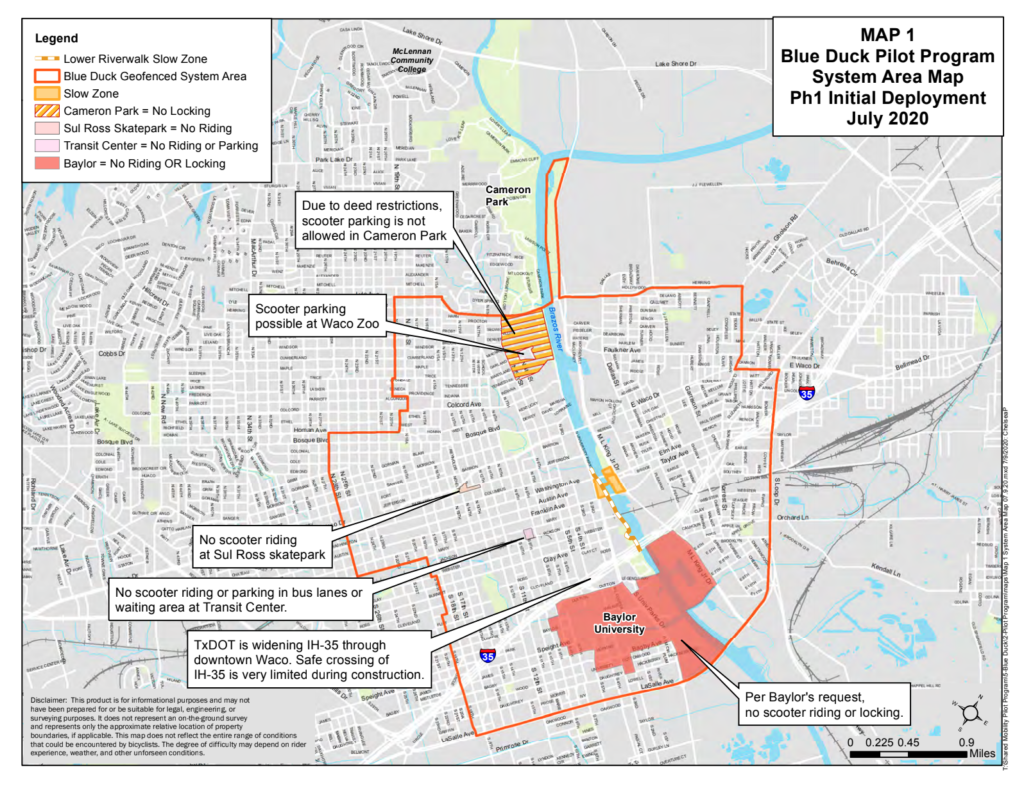
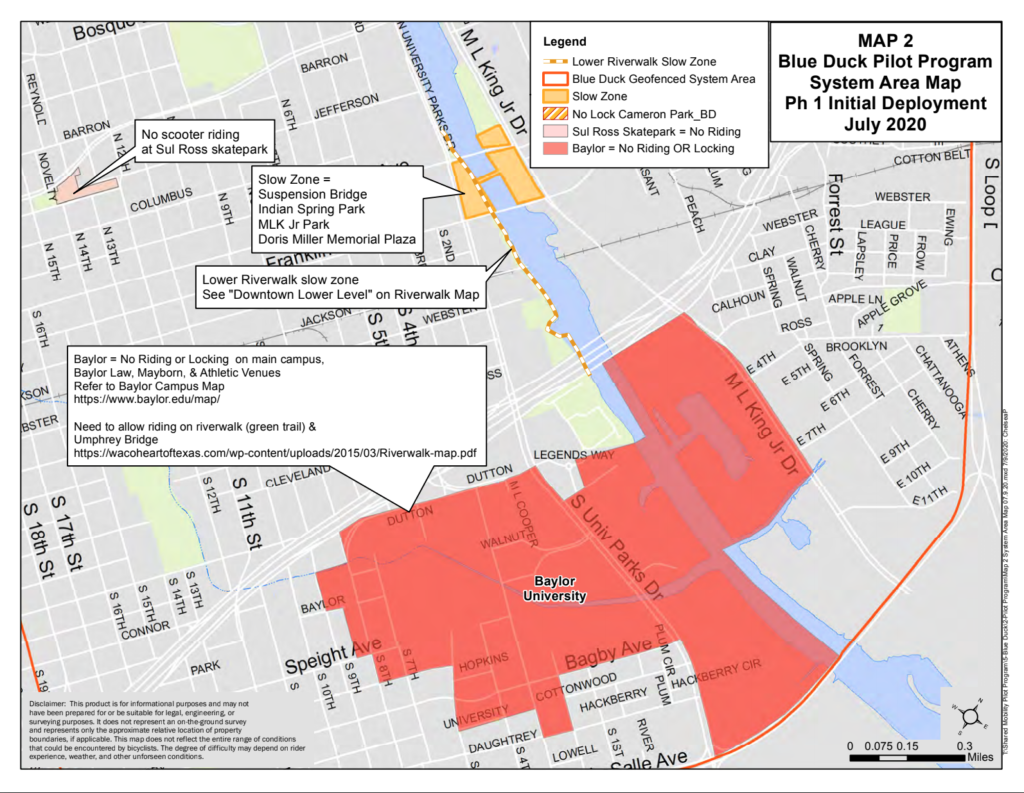
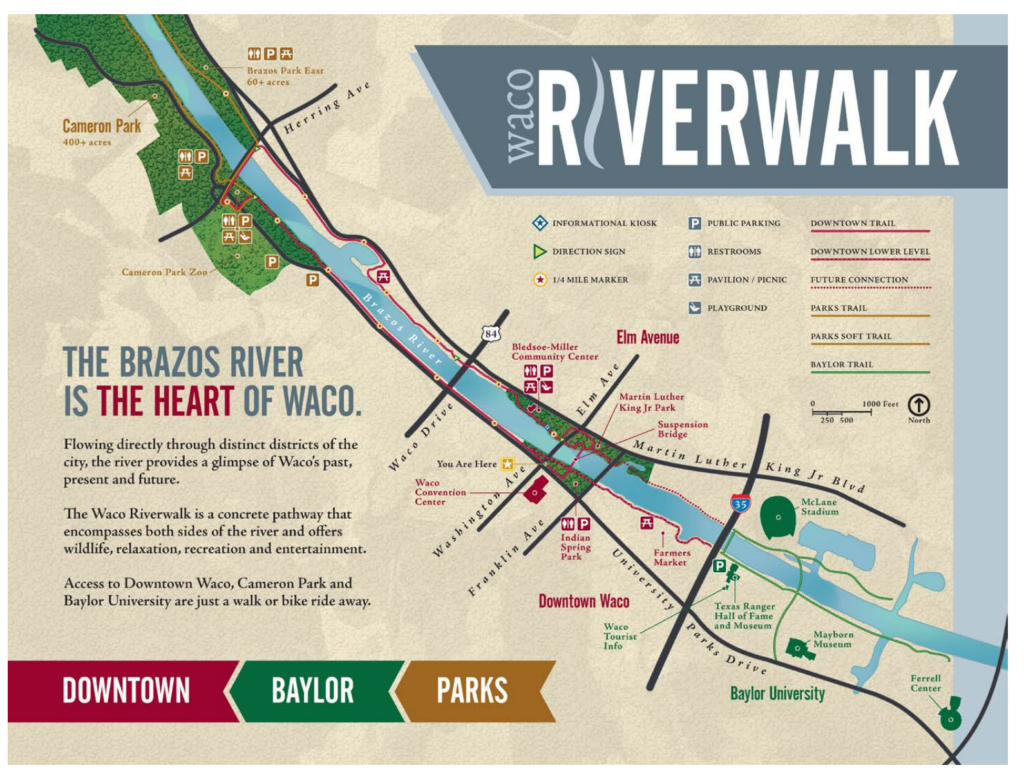
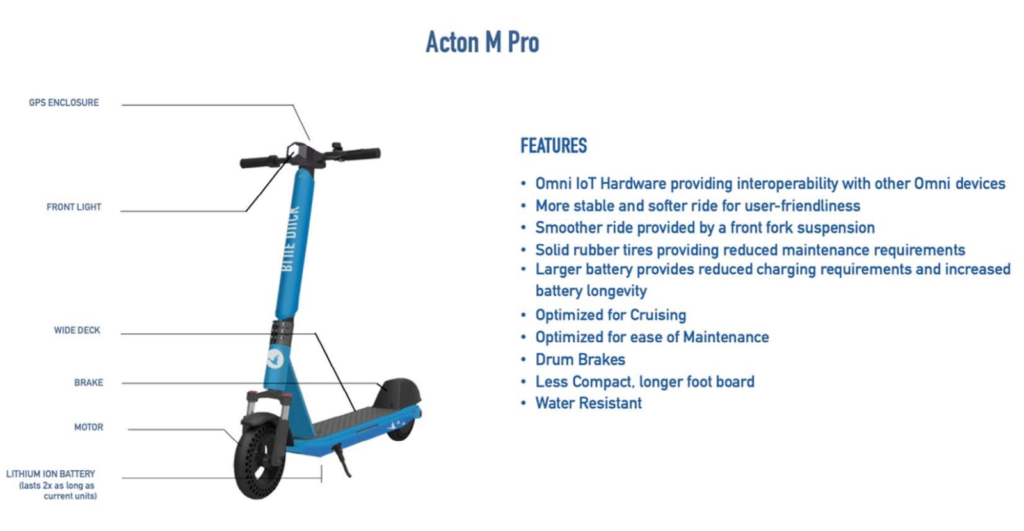
By Emily Hunt-Hinojosa
In the wake of COVID-19, everyone wants to know what the data says. Numbers and stories can reveal the facts of a situation and help us to better understand it. Making use of data is a process — first, finding data, then understanding, then guided responses.
The hunt for data and facts is really a quest for truth-finding. At its best, meaningful data can lead us to real awareness of a given situation, which can help governments, health organizations, businesses,nonprofits, and people plan for the days ahead.
Leaders need precise data, accurate data, data that can help us understand for whom COVID-19 is a problem and for whom it is less of a problem. Who is getting sick? Who is dying? Who is losing their jobs? Who isn’t losing their job? Who wears a mask? Who doesn’t? Why in the world not? Where should I put resources? Who is fine? Who is not fine? Why is this happening to us?
Answers to these good questions are not easy to discover. The yearning for data speaks to a larger issue. When we are truly honest, we aren’t quite sure what to do in this current moment; we have never lived through this before. However, our efforts do not have to be just a shot in the dark. We can make informed decisions to the best of our ability.
In addition to Covidwaco.com, here are five data tracking tools/websites that can enhance our understanding of the effect of COVID-19 on our Waco community.

- City Health Dashboard COVID Local Risk Index
The COVID Local Risk Index can help us understand where in the community the risk for COVID infection and illness severity may be concentrated. The purpose of this index is to estimate which parts of the community may need the most support as coronavirus cases increase, focusing on neighborhoods as a way of gaining key insight for policy. The estimate of risk is based on socioeconomic and demographic factors as well as underlying COVID-related issues and outcomes in the community. Waco scores a 9 out of 10 for local risk. Data is available for the city and census tracts, as well.

- COVID-19 Community Vulnerability Index
Surgo Foundation’s COVID-19 Community Vulnerability Index (CCVI) combines the CDC’s social vulnerability index with additional data for a total of six themes and 34 variables. The CCVI can help us consider what factors are contributing to vulnerability for a given community/neighborhood in McLennan County. Data is available for the county and census tracts.

- Texas 2036 COVID-19 Tracking Dashboard
Texas 2036 has a dashboard to find out about COVID’s impact across Texas. The focus is mostly on economic and health data, including unemployment filings, and mobility trends. Data is available at the county level.

- COVID-19 Demographic and Economic Resources.
The Census Bureau has two noteworthy resources: First, the COVID-19 Impact Report available for McLennan County. This report contains a variety of quick facts such as basic demographic information, who has and doesn’t have health insurance, and what percentage of county residents have access to the Internet. Secondly, the Census has created a measure for Community Resilience to estimate how resilient a given community is after experiencing disasters — including pandemics. The Community Resilience Estimates are available for census tracts throughout our county.

- Waco RoundTable
WacoRoundTable.org is Prosper Waco’s newly launched Community Data Platform for Waco. Over 100 quantitative indicators have been mapped across various community geographies to highlight pressing issues in our community. To explore COVID-related data, under Topics, click COVID-19, choose an Indicator, and choose a Geography. You can also add to this site by entering data on your organization, business or nonprofit as a profile on Waco RoundTable.
If you have questions about any of these sources or know of other sources we should be considering, contact [email protected].
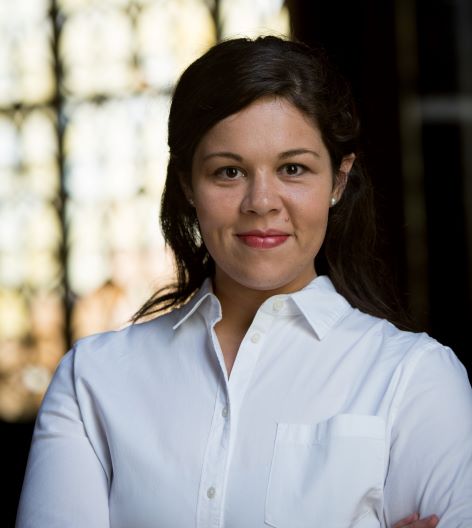
Emily Hunt-Hinojosa is director of research and community impact at Prosper Waco. She is responsible for evaluating progress toward community goals in the areas of education, health, and financial security. Dr. Hunt-Hinojosa holds an Associate Fellowship at the Institute for Advanced Studies in Culture, where she was employed prior to joining Prosper Waco. She holds M.A. and Ph.D. degrees from the Department of Sociology at Baylor University, as well as both a master’s in higher education and student Affairs and a bachelor’s in social studies education from Taylor University.
Padres,
Mientras planeamos reabrir nuestras escuelas el próximo mes, queremos saber de usted. Le pedimos que tome unos minutos para completar nuestra Encuesta de reapertura de escuelas. Sus comentarios son importantes para nosotros para que podamos satisfacer mejor las necesidades de usted y su familia en el año escolar 2020-21. Puedes hacer clic en el siguiente enlace para la escuela de su hijo.
● Alta Vista Elementary School
● Brook Avenue Elementary School
● J.H. Hines Elementary School
Gracias,
Robin McDurham
Chief Executive Officer
Transformation Waco
Parents,
As we plan for reopening our schools next month, we want to hear from you. We ask that you take a few minutes to complete our School Reopening Survey. Your feedback is important to us so we can best meet the needs of you and your family in the 2020-21 school year. Please click on the name of your child’s school to start the survey.
● Alta Vista Elementary School
● Brook Avenue Elementary School
● J.H. Hines Elementary School
Thank you,
Robin McDurham
Chief Executive Officer
Transformation Waco
NEWS RELEASE
A pair of familiar Waco ISD campus leaders have been selected as the district’s newest elementary principals. Provident Heights Elementary Assistant Principal Courtney Whitaker will transition to her new role at that campus, while Cesar Chavez Middle School Assistant Principal Lena Ortiz will join Parkdale Elementary.
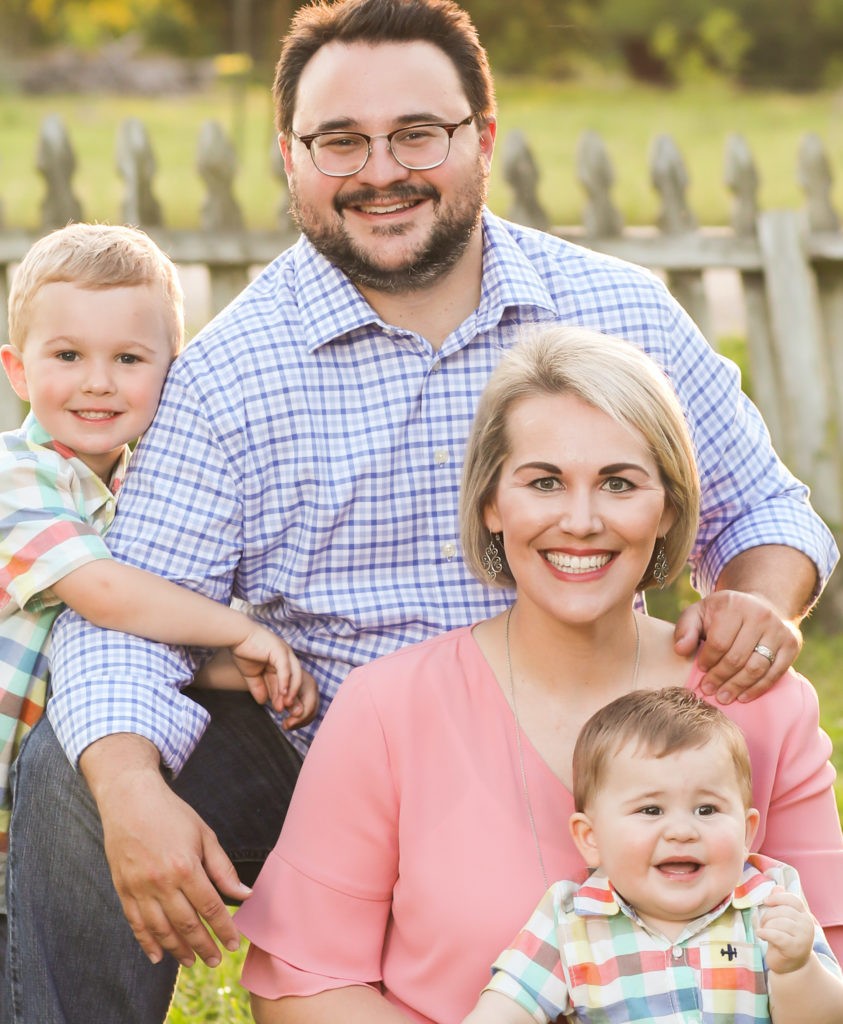
Whitaker has been with Waco ISD for six years, starting at Provident Heights as an instructional specialist. Before coming to Waco, she spent six years as an elementary school teacher in Carrollton/Farmers Branch ISD. She has master’s and bachelor’s degrees in education from Texas Woman’s University, where she also minored in special education. Whitaker is taking over leadership from Debbie Sims, who is retiring after 38 years in the district.
“I am both excited and honored to be the new principal of Provident Heights Elementary,” Whitaker said. “This year, we will carry on the tradition of pursuing academic excellence and establishing a growth mindset for all students. I look forward to continuing to build relationships with parents, staff and students.”
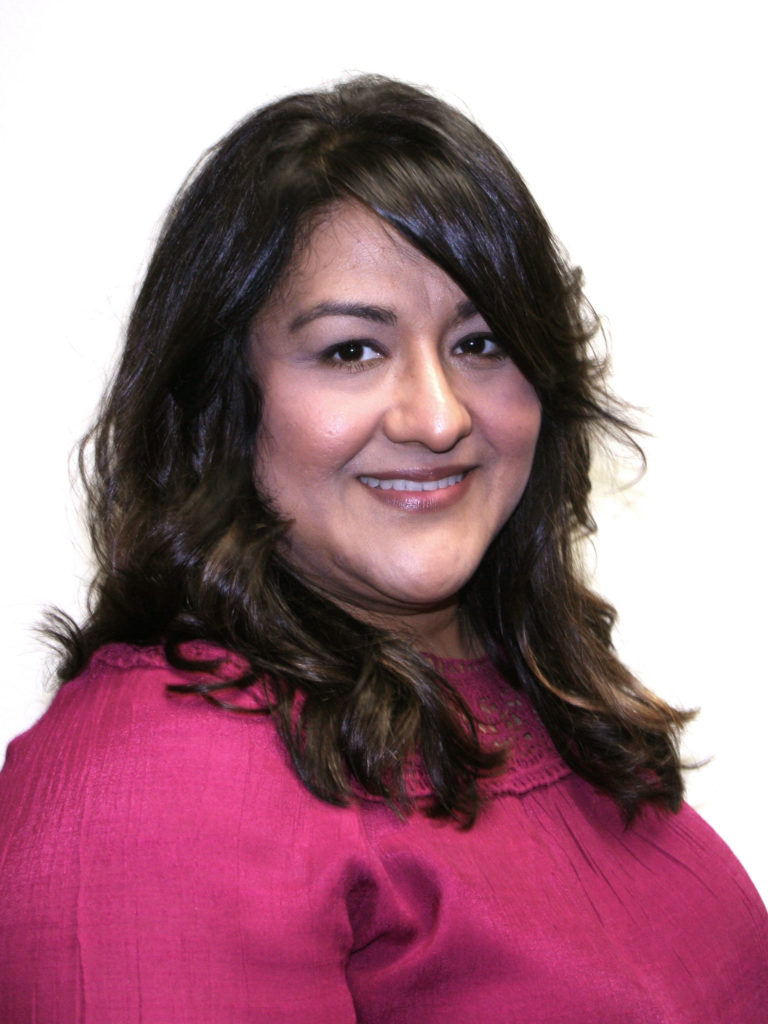
Ortiz is a 12-year educator with experience as a classroom teacher and instructional specialist at Kendrick Elementary, where she was selected as the school’s teacher of the year for 2011–2012. She received her bachelor’s degree from University of Mary Hardin-Baylor and a master’s of educational administration from Tarleton State University, where she is currently pursuing a doctoral degree in educational leadership. Ortiz is succeeding principal Marsha Henry, who recently retired after serving 15 years as principal at Parkdale.
“It is a privilege to have been selected as the new Parkdale principal,” Ortiz said. “I am excited for the opportunity to join WISD instructional leaders in the pursuit of educational excellence for all students. I look forward to building new relationships and collaborating with students, staff and parents to build and enhance Parkdale’s success.”
Waco ISD Superintendent Susan Kincannon said, “Courtney and Lena bring a wealth of campus leadership experience to their new roles as elementary principals for our district. . . . I’m thrilled for them and know they’re ready to get to work with their campus teams and continue building important relationships.”
By Jo Welter, on behalf of the Community Race Relations Coalition
In response to the request for community input regarding the choice of a new police chief for Waco, the board of the Community Race Relations Coalition (CRRC) offers the following.
We are grateful to live in a city with courageous leaders who have decided to begin again with the search for a new police chief after considering input from some in the community. This was a difficult and wise decision and we commend them for this and for now asking for wider input from Waco citizens.
In a July 1 Waco Trib piece by reporter Kristin Hoppa, Waco Police Detective Ken Reeves was quoted as saying, “I think we just want to find the right chief that will be there for our officers.”
In a June 6 guest column in the Waco Trib, attorney Mark Osler wrote, “The great challenge going forward is the same as it has been for decades: to create a police force that truly protects and serves all of the people.”
Our first suggestion is that we go with Osler’s suggestion and look for someone who will serve and protect everyone – officers and citizens as well.
We would love to see a chief who is a person of color or a woman, with no regard for religion or gender preference. It is important for us all to see people from groups that are underrepresented in positions of authority and importance, and this will serve us in many ways. The other qualities we would like to see considered in looking for a new chief include:
- Truthfulness and openness, including indications that he/she would give thoughtful consideration to all possibilities in any situation
- A genuine interest in improving equity and creating justice for all citizens in our community
- An understanding of what Black Lives Matter really means
- An interest and commitment to learning and promoting de-escalation techniques in interaction for use between officers and citizens
- A striving to do what is morally right, standing up against political interests and police union and civil service issues when called for
- An attitude of compassion and understanding toward the citizens they serve and protect, treating citizens as allies, not as “others”
- Openness to ideas like a citizens’ board to oversee disciplinary decisions
- Positive attitude toward cultural sensitivity learning for officers and for youth involved in police programs
We believe that specific policies against forms of restraint and treatment of offenders are certainly necessary.
An issue that might be even more important here in Waco is the need to purposefully work to eliminate the “us against them” attitude that is so pervasive in our society, including between the police department and citizens. This attitude has become so ingrained in us that we are often not even conscious of the ways in which it affects our behavior.
We are drawing from a pool of candidates that, like all of us, is influenced by the “us against them” attitude. The police in many communities have circled the wagons around themselves in self-protection. It makes it difficult to find the perfect new police chief for Waco.
We support and appreciate these efforts in finding the right chief for Waco. We look forward to the future here in our beloved Waco.
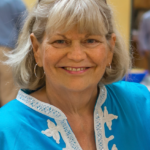
Jo Welter has lived in the Waco area for 29 years and has been an active participant in the Community Race Relations Coalition (CRRC) for 20+ years. She currently serves as chair of the CRRC board.
The Act Locally Waco blog publishes posts with a connection to these aspirations for Waco. If you are interested in writing for the Act Locally Waco Blog, please email [email protected]for more information.
By Liya Scott
Remember the name “Texans Recovering Together” because you and I may need it. No matter where you live or who you work for, we are in this together.
The Crisis Counseling Program of Texans Recovering Together provides free, anonymous, and confidential support services to individuals and families coping with the ongoing effects of the Coronavirus. Yes, the pandemic — which was declared a national disaster in March — created an opportunity for this program.
It is staffed by a team of Crisis Counselors who don’t keep case files (the anonymous and confidential part) and Community Liaisons who will meet with any person or group that needs short-term support during the disaster. Here’s how the disaster has affected my fellow staff.
Jonnell is one of four community liaisons. She told me about a distant family member who fell ill with the coronavirus prior to its big introduction to the United States. This family member ended up in a Waco hospital’s intensive care unit with little-to-no outside contact. She recovered and was released just in time for the Christmas holiday season. Six months later, Jonnell said, “Seeing her lie in the fetal position struggling to breathe, knowing now what she had, I now take it much more seriously.”
Jamie is also a community liaison. She told me about her next-door neighbor in her Wisconsin hometown who was diagnosed with coronavirus. The man was experiencing flu-like symptoms for two weeks prior to the diagnosis — the results frightened her. “We could hear him cough through the walls of our house,” Jamie recalled. She added, “It feels like a circle creeping closer and closer around the people I love. I just wonder when it will close around me.”
Alice is one of our counselors. She told me about a friend who recently lost her father to COVID-19. He was an elderly man who fit the “at risk” criteria. Although he is survived by five children, his children still express frustration regarding people who choose not to comply with Centers for Disease Control guidelines.
Gabby is also a counselor. Here’s what she shared about her niece who had a potential run-in with an asymptomatic carrier: “She’s like my kid! She’s also my babysitter,” Gabby said with a lump in her throat. Gabby explained how the family has had to deviate from their usual routine of hosting their niece for the summer. But this story has a happy ending: Gabby’s niece tested negative. While relieved to know their niece did not contract the virus, the family continues to practice safe measures, including wearing face masks in public.
Then there’s my story. I’m Liya, one of the community liaisons. If there is one thing I have learned from this pandemic/disaster, it is to increase my empathy for others.
I realize this thing is so much bigger than me. I do well to recognize the need to be my brother’s keeper and consider how my actions affect others. The little changes I adopt to slow the spread really do make a difference. I continue to avoid large crowds; I wear a mask to protect others and myself; and I decontaminate when I re-enter my home. I choose to do what I can.
This spring, I lost a family member to COVID-19. She was a mother, a sister, a wife, and a daughter. To me, she was also a friend. They say a thing does not become real until you have some skin in the game. Well, the death of my aunt gave me the wake-up call I needed.
Another fellow colleague summarized: “If you think you are doing enough, do more. I don’t think people need to lose a loved one in order to wake up to this message.”
I’ve heard this phrase tossed around town: “We are all bound to contract the virus at some time or another.” Maybe so, but I don’t believe all of us will survive.
That’s why I’m here. #TexansRecoveringTogether can help with accessible, caring and responsive support services for anyone who’s struggling to cope with the effects of this pandemic. We’re only a phone call away.
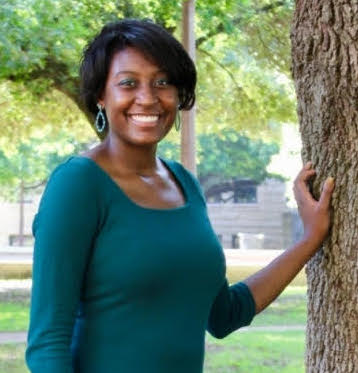
Liya Scott is a Community Liaison / Linkage Coordinator with the Crisis Counseling Program. She is a Colorado native but calls Waco home. A graduate of Baylor University, Liya thoroughly enjoys the meaningful work she is able to do with the Texans Recovering Together CCP. In her spare time, Liya enjoys creative cookery, hiking the trails, browsing the local Farmer’s Market, and trying out amazing local cuisine.
The Act Locally Waco blog publishes posts with a connection to these aspirations for Waco. If you are interested in writing for the Act Locally Waco Blog, please email [email protected]for more information.
A new data platform is rolling out for use across Greater Waco. It’s called WacoRoundTable.org.
WacoRoundTable.org houses over 100 quantitative indicators about our community that will help nonprofits, businesses, governmental entities, and other organizations understand better the statistical reality of Greater Waco across a variety of interest areas and geographies.
Nonprofits, businesses, governmental entities, and other organizations are now able to go to the site and share basic information in order to help other groups and individuals to know about them and what they do.
For instance, already in this early stage, a person can go to the site looking for information about health organizations and see several in the city of Waco. That will expand as more organizations add their profile information. But it’s not just for the city of Waco; it is for the broader McLennan County community.
There is no cost to adding your organization profile. This is a free service to organizations provided by Prosper Waco, with support from the City of Waco.
It’s easy to add your organizational profile.
You might first view a couple of existing profiles to see the type of information that can be shared. For instance, here is the profile for Act Locally Waco. And here is the one for Grassroots Community Development. And, the one for Cen-Tex Hispanic Chamber of Commerce.
To set up a profile, an acknowledged representative of a nonprofit, business, governmental entity, or other organization will go to WacoRoundTable.org and click the button below “Create a Profile.”
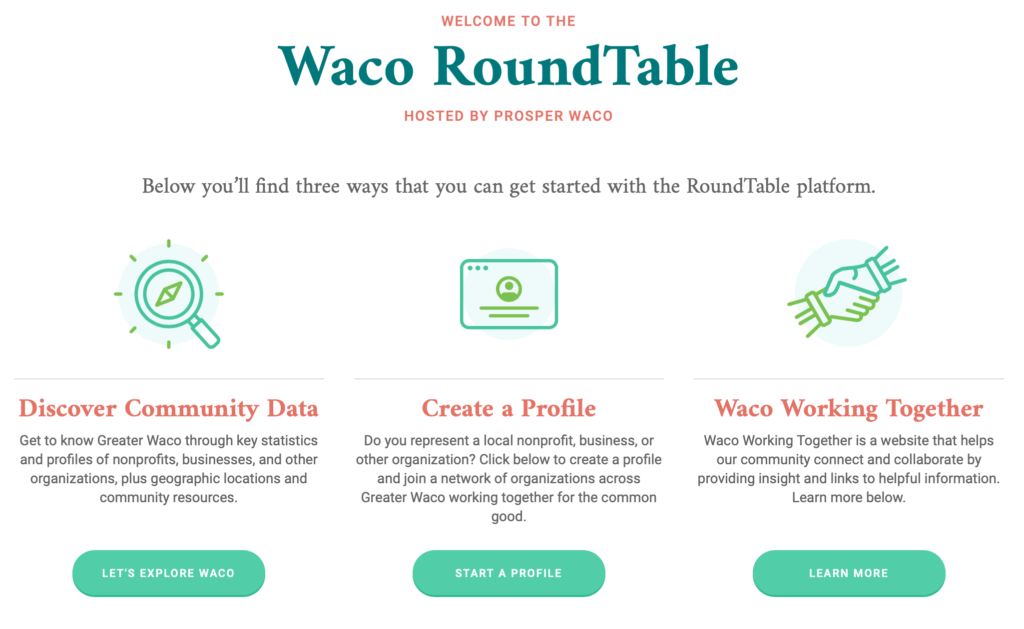
You will then be prompted for your email address and to create a password.
Once you have logged in, you will see a page with four tabs at the top — Dashboard, Organization Profile, Manage Programs, and Users.
Click on Organization Profile and there will be a form to input the different information, some are required but not all. You can save each item as you go or at the end.
At the end, click submit.
Prosper Waco staff reviews all submissions and, if everything is in order, shares them publicly.
Once you have completed the basic profile information, you can sign back in and add more detailed information on your organization’s varied programs. For instance, Act Locally Waco has a program called Waco Walks; check it out.
The profiles and programs help groups and individuals connect with needed organizations, but more is coming to the site.
For more information or for help completing a program, contact Ferrell Foster at [email protected].
As the COVID-19 pandemic continues, McLennan Community College is diligently planning for what will be a different kind of semester this fall.
This new initiative, #McLennanTogether, focuses on opening MCC safely and efficiently this fall. MCC is using a phased approach in returning to campus based on federal, state, and local guidelines regarding public health. Leaders hope to have all employees back on campus on Aug. 3, with some flexibility.
Courses that would normally use face-to-face instruction have become “blended” courses – a combination of both in-person and online instruction. The in-person format will use safety measures like face coverings, social distancing, and disinfectants. Online instruction includes secure lessons through videoconferencing software, including Zoom, and utilization of the learning management system, Brightspace, where students and teachers may interact and submit assignments.
How does that look practically?
Classes that meet on Tuesdays and Thursdays, for example, could include class meetings on Tuesdays and virtual sessions on Thursdays. This gives students the advantages of a physical classroom – direct access to professors and classmates – and the online classroom, which allows for flexibility, technological capabilities, and slowing the spread of COVID-19. Again, face coverings are vital to the success of this system and having students in classrooms.
If the number of local cases of COVID-19 continues to increase at a dangerous rate, the college is preparing to again convert all courses to purely online formats. Communications with professors will be especially important this semester and even more so if courses must go completely online.
Here are a few tips for success in blended courses:
- Create a routine. Scheduling days around school and work can bring a sense of normalcy. Marking due dates, meetings, and other obligations can be done in your email account, phone calendar, or physical calendar. Sometimes, the easy step of jotting down a reminder is the difference between staying ahead or falling behind in a course.
- Use available resources. In her frequent communications, MCC President Johnette McKown has encouraged students to take advantage of the many resources available to them. Success coaches, Paulanne’s Pantry, the Counseling Center, the MCC Foundation, the Financial Aid office, and the library provide unique resources that students may access.
- Have a communication plan. Keeping in touch with professors and classmates in different formats will be pivotal this semester. Ask questions of professors and classmates through email and Brightspace and check student email account frequently for campus communications.
- Take breaks! These are difficult, unprecedented times for us all. When you’re feeling overwhelmed, take some deep breaths, go for a walk, call a friend or family member, or read a book for fun.
One success story from the spring, after the abrupt conversion to online courses, came from Jamaal Greene, the assistant men’s basketball coach and a weightlifting instructor at MCC. He said the transition wasn’t always easy, but it was rewarding. The format of an interactive course like weightlifting benefits from in-person motivation.
“What I like about those classes, and the students said the same thing – I did every workout with them,” Greene said. “When they were tired, I was tired. When they wanted to quit, I was able to push. When they went through misery, I went through misery with them, so that helped.”
In place of that, he refamiliarized himself with Brightspace, and students completed new at-home workouts with little or no equipment. Greene said students measured heart rates and relayed their thoughts on each exercise. Creative solutions, with the guidance of MCC’s Center for Teaching and Learning, have been instrumental in completing work during these difficult times.
Faculty and staff members were “comforting my anxieties of doing this, and they helped tremendously,” he said.
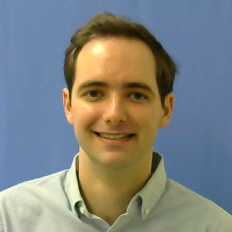
Phillip Ericksen is marketing and communications specialist at McLennan Community College. For about four years, he was a journalist at the Waco Tribune-Herald covering higher education and local government. He enjoys following the news, reading books and drinking coffee. As a San Antonio native, he is an avid fan of Mexican food and the Spurs basketball team. He holds a bachelor’s degree in journalism from Baylor University. He can be reached at [email protected].
The Act Locally Waco blog publishes posts with a connection to these aspirations for Waco. If you are interested in writing for the Act Locally Waco Blog, please email [email protected]for more information.
